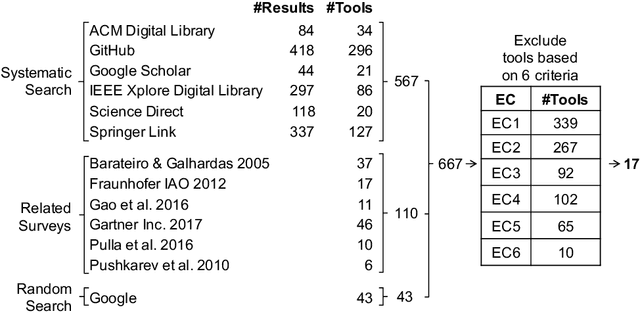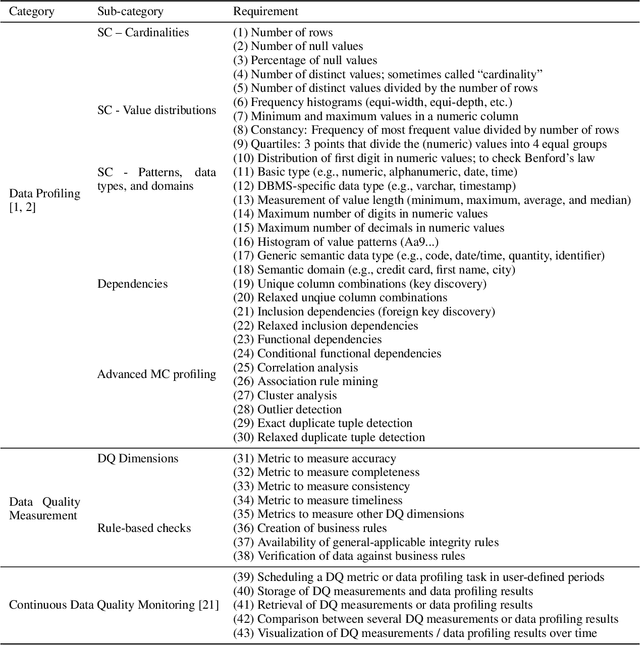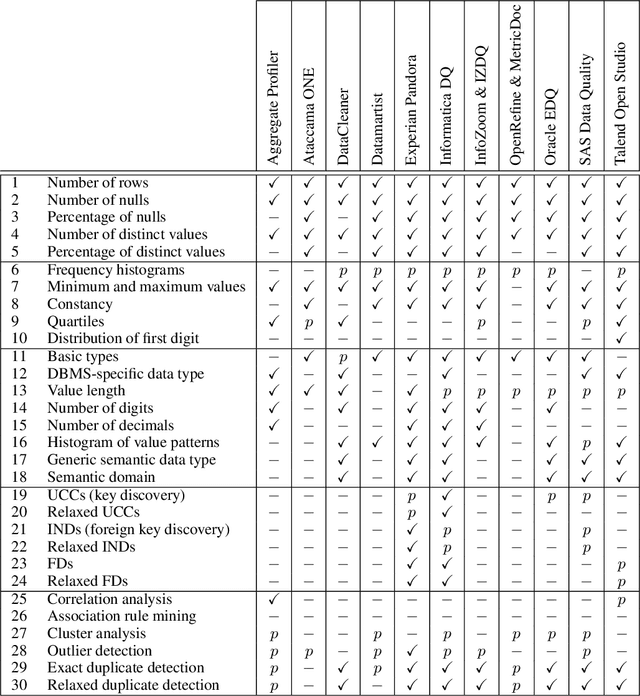Wolfram Wöß
A Survey of Data Quality Measurement and Monitoring Tools
Jul 18, 2019



Abstract:High-quality data is key to interpretable and trustworthy data analytics and the basis for meaningful data-driven decisions. In practical scenarios, data quality is typically associated with data preprocessing, profiling, and cleansing for subsequent tasks like data integration or data analytics. However, from a scientific perspective, a lot of research has been published about the measurement (i.e., the detection) of data quality issues and different generally applicable data quality dimensions and metrics have been discussed. In this work, we close the gap between research into data quality measurement and practical implementations by investigating the functional scope of current data quality tools. With a systematic search, we identified 667 software tools dedicated to "data quality", from which we evaluated 13 tools with respect to three functionality areas: (1) data profiling, (2) data quality measurement in terms of metrics, and (3) continuous data quality monitoring. We selected the evaluated tools with regard to pre-defined exclusion criteria to ensure that they are domain-independent, provide the investigated functions, and are evaluable freely or as trial. This survey aims at a comprehensive overview on state-of-the-art data quality tools and reveals potential for their functional enhancement. Additionally, the results allow a critical discussion on concepts, which are widely accepted in research, but hardly implemented in any tool observed, for example, generally applicable data quality metrics.
 Add to Chrome
Add to Chrome Add to Firefox
Add to Firefox Add to Edge
Add to Edge